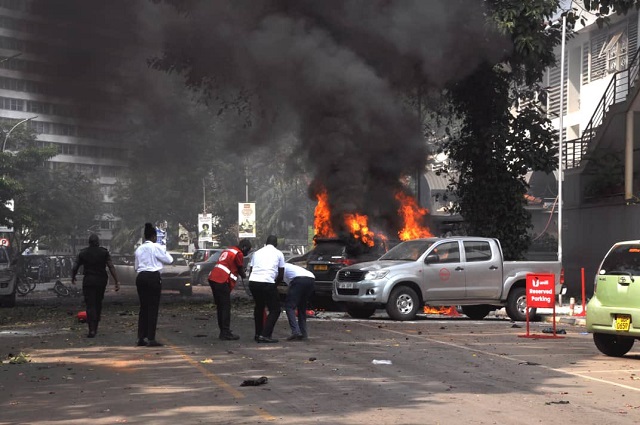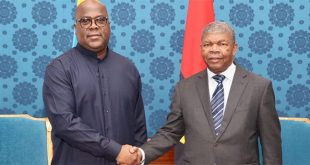
Addis Ababa, Ethiopia | Xinhua | Africa’s fight against terrorism is reduced to the minimum due to a lack of strong support from the international community, Chairperson of the African Union (AU) Commission, Moussa Faki Mahamat has said.
Mahamat made the remarks as African leaders on Saturday convened the AU Extraordinary Summit on Terrorism and Unconstitutional Changes of Government in Africa that was held in Malabo, capital of Equatorial Guinea.
The meeting envisaged strengthening the collective security of African countries facing terrorism and unconstitutional changes of government.
Mahamat said terrorism and unconstitutional changes of government feed each other, with intertwined causes which provide fertile ground for military coups and terrorist attacks on the continent.
Mahamat said Africa’s fight against terrorism is slowed down by the lack of strong commitment from the international community.
He further expressed concern over the resurgence in military coups across Africa, as he emphasized the need to abolish unconstitutional changes of government in Africa as it promotes terrorism and armed violence.
Mahamat said the sustainability and stability of democratic institutions is a guarantee of the economic and social development of African countries. Conversely, the untimely ruptures of the democratic process in progress constitute obstacles to the continent.
He said terrorism and unconstitutional changes of government are indisputably reversing Africa’s development priorities and hampering the continent’s march towards progress and development.
The high-level gathering was convened under the framework of the AU Extraordinary Summit running from Wednesday to Saturday.
According to the AU’s African Centre for the Study and Research on Terrorism (ACSRT), several structural factors are responsible for the spread of terrorism.
Among the factors include transnational organized crimes and financing of terrorism and the proliferation of arms; resurgence of the role of foreign fighters and mercenaries; political instability; chronic governance deficits and the resultant worsening poverty and inequality; deliberate misinterpretation and misrepresentation of religion; weak defense and law enforcement response capacities.
UN Undersecretary-General Vladimir Voronkov, who heads the UN Counter-Terrorism Office, on his part told the African leaders that terrorism remains a significant global threat, affecting the lives and well-being of millions of people.
“This threat has been felt particularly in the five regions of Africa, where terrorist activities have regrettably increased,” he said.
According to the 2022 Global Terrorism Index, approximately half of all deaths attributed to terrorism globally last year were recorded in the African continent.
Voronkov said terrorist groups such as Al-Qaida and Da’esh, as well as their affiliates, have intensified their attacks across Africa, promoting chaos, killing innocent civilians, exacerbating intercommunal tensions, and contributing to humanitarian catastrophes, undermining state authority, and upending development.
In West Africa and the Sahel, they continue to exploit limited governing capacities, socioeconomic fragilities and local grievances, he said.
He said the challenge is further compounded by the intricate relationships between terrorists, armed groups and criminal networks, and the political upheaval caused by the recent wave of coups.
He said terrorist activities have exacerbated ongoing conflict dynamics, aggravating instability and human suffering in several African countries.
Voronkov said reports of an increased influx of foreign terrorist fighters in some of these countries are also gravely concerning.
African leaders attending the meeting, among other things, assessed the persistent threats, and evaluate current response mechanisms.
The meeting is expected to decide on the specific actions and measures necessary to strengthen the collective security of AU member states facing terrorism and violent extremism, according to the AU.
*****
Xinhua
 The Independent Uganda: You get the Truth we Pay the Price
The Independent Uganda: You get the Truth we Pay the Price


